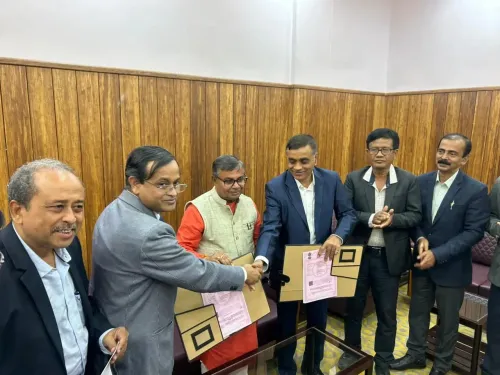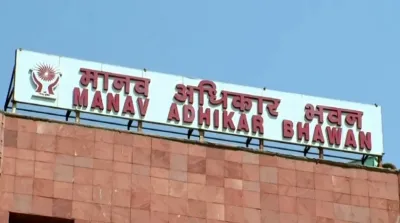How is the World Bank Program Enhancing Health Coverage for 11 Million People in Kerala?

Synopsis
Key Takeaways
- 11 million individuals in Kerala to benefit from improved health coverage.
- The program includes a $280 million investment focused on elderly care.
- Aim for 40% increase in controlled hypertension cases.
- Focus on women’s health with a 60% rise in cancer screenings.
- Enhancement of digital health systems and emergency care services.
New Delhi, Oct 24 (NationPress) The Board of Executive Directors at the World Bank has recently given the green light to a transformative initiative aimed at enhancing life expectancy and overall wellbeing for 11 million elderly and at-risk individuals in Kerala through improved health coverage.
The $280 million Kerala Health System Improvement Programme is designed to create a more robust health system capable of withstanding climate-related challenges.
This initiative will also bolster Kerala’s digital health infrastructure via expanded eHealth services, integrated data systems, and improved cybersecurity measures.
The programme is set to manage and support over 90 percent of patients registered for conditions such as hypertension and diabetes in the state through individualized electronic tracking systems. Furthermore, it will introduce a home-based care model for elderly individuals who are bedbound or homebound, ensuring comprehensive health services are accessible.
Paul Procee, the World Bank’s Acting Country Director for India, stated, “Good health empowers people, creates jobs, and drives economic growth. Resilient health systems enable economies to better prevent and respond to health emergencies and pandemics.”
He further emphasized that in Kerala, where women hold some of the highest educational achievements in the nation, optimal health can significantly contribute to the state’s economic advancement. The programme is expected to achieve a 40 percent increase in controlled hypertension cases and a 60 percent rise in screenings for cervical and breast cancer among women, aiming to eradicate preventable deaths.
Kerala has experienced sustained health improvements over the past two decades, with notable reductions in neonatal (3.4 per 1,000 live births), infant (4.4 per 1,000 live births), under-five mortality (5.2 per 1,000 live births), and maternal mortality rates (19 per 100,000 live births). These progressions are attributed to high literacy rates, public health awareness, and decentralized governance. Nonetheless, the health system faces challenges due to an increasing incidence of non-communicable diseases (hypertension, diabetes, cancer) and an ageing population, which now represents over 20 percent of the total demographic.
Despite these advancements, there are significant gaps in emergency and trauma care, with more than 4,000 road traffic fatalities recorded each year.
The new programme will collaborate with local government entities, including gram panchayats and municipal corporations, to implement standardized protocols for antibiotic usage and tackle zoonotic disease outbreaks by accelerating reliable laboratory information for patients.
Primary health facilities in districts like Wayanad, Kozhikode, Kasaragod, Palakkad, and Alappuzha will also adopt climate-responsive solutions to enhance energy efficiency and manage extreme heat and flooding.
Deepika Chaudhery and Hikuepi Katjiuongua, the Task Team Leaders of the initiative, stated, “Kerala has embraced One Health strategies, leveraging experiences from ongoing World Bank support to establish a robust community surveillance system.”
“This programme will guarantee that elderly individuals in Kerala gain broader access to health coverage through innovative measures. Additionally, it will establish a multilevel trauma and emergency care system, ensuring that 8.5 million people receive timely, high-quality services,” they added.
The $280 million loan from the International Bank of Reconstruction and Development (IBRD) comes with a final maturity of 25 years and a grace period of five years.










